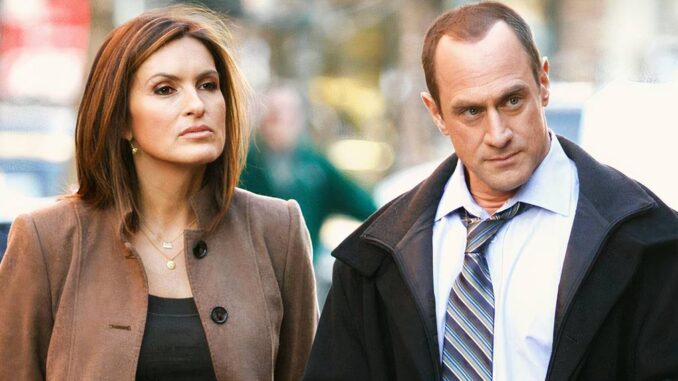
The Long Game: Dick Wolf and the Implicit Intimacy of Benson & Stabler
Dick Wolf, the prolific architect of crime television, has built an empire on procedural storytelling and the compelling drama of human relationships navigating the gritty realities of justice. While many of his creations boast memorable partnerships, none have captivated audiences quite like Olivia Benson and Elliot Stabler of Law & Order: Special Victims Unit. For over a decade, their on-screen chemistry sparked fervent speculation about a romantic relationship, a potential fueled by unspoken anxieties, shared trauma, and unwavering loyalty. While Mariska Hargitay, who embodies Olivia with such profound authenticity, has hinted at a more deliberate, slow-burn romantic arc, Dick Wolf, in his own way, long proved that Benson and Stabler were already "together" – connected by something far deeper and more enduring than a simple love affair.
The beauty of Wolf's storytelling lies in its subtlety. He doesn't rely on grand romantic gestures or sweeping declarations of love. Instead, he paints a portrait of intimacy through shared experiences, quiet moments of understanding, and the unspoken language of two souls intricately interwoven. Consider the early seasons of SVU. Benson and Stabler are thrust into the darkest corners of the human psyche, witnessing unspeakable acts of cruelty and confronting the profound brokenness of victims. They become each other's lifeline, a constant in a world of relentless horror. This forged a bond of trust and dependence that transcends the professional realm.
Think of the countless times Stabler, with his explosive temper and protective instincts, physically shields Benson from danger, his arm a barricade against the world's brutality. Or recall the moments Benson, with her empathetic heart and unwavering commitment to justice, acts as Stabler's moral compass, guiding him back from the brink of rage and despair. These acts, seemingly simple in isolation, speak volumes about the depth of their connection. They are not the actions of mere colleagues; they are the instinctive responses of two people who care deeply for each other's well-being.
Furthermore, Wolf's dedication to realism often meant showcasing the complexities of relationships. Benson and Stabler's partnership wasn't without its friction. Stabler's intensity could be overwhelming, his methods sometimes crossing ethical lines. Benson, in turn, challenged his ingrained biases and forced him to confront his own demons. These conflicts, rather than driving them apart, served to strengthen their bond. They learned to navigate each other's flaws, to understand the motivations behind their actions, and to ultimately respect the differing perspectives that made them such an effective team.
Even Stabler's marriage to Kathy, a significant obstacle to a traditional romantic relationship, never truly severed the profound connection he shared with Benson. While Kathy represented a conventional family life, Benson represented a shared understanding of a world that few others could comprehend. Their bond transcended romantic definitions, existing in a space of profound empathy and mutual reliance. When Stabler left the SVU, the void he left in Benson's life was palpable. It wasn't just the loss of a colleague; it was the loss of a soulmate, a confidante, and a vital part of her own identity.
While Hargitay's vision for a more gradual, nuanced romantic development may be the direction the current iteration of the show is taking, Wolf's initial conception laid the groundwork for this possibility precisely because he recognized the inherent intimacy of their bond. He understood that "being together" isn't always about romantic entanglement. It's about shared experiences, unwavering support, and a profound understanding that transcends the limitations of conventional relationships. He subtly imbued their interactions with a deep sense of connection, laying bare the vulnerabilities and unspoken affections that fueled the audience's desire for more.
In conclusion, Dick Wolf, through his masterful storytelling and astute understanding of human relationships, demonstrated that Benson and Stabler were "together" long before any potential romantic development could take shape. Their bond, forged in the fires of shared trauma and unwavering loyalty, was a testament to the power of human connection in its most profound and multifaceted form. He showed us that intimacy can exist in the quiet moments of understanding, in the instinctive acts of protection, and in the unwavering support of two souls inextricably bound by a shared purpose. It is this deep, implicit intimacy that continues to resonate with audiences, proving that the true magic of Benson and Stabler lies not just in their potential for romance, but in the enduring power of their unwavering partnership.
